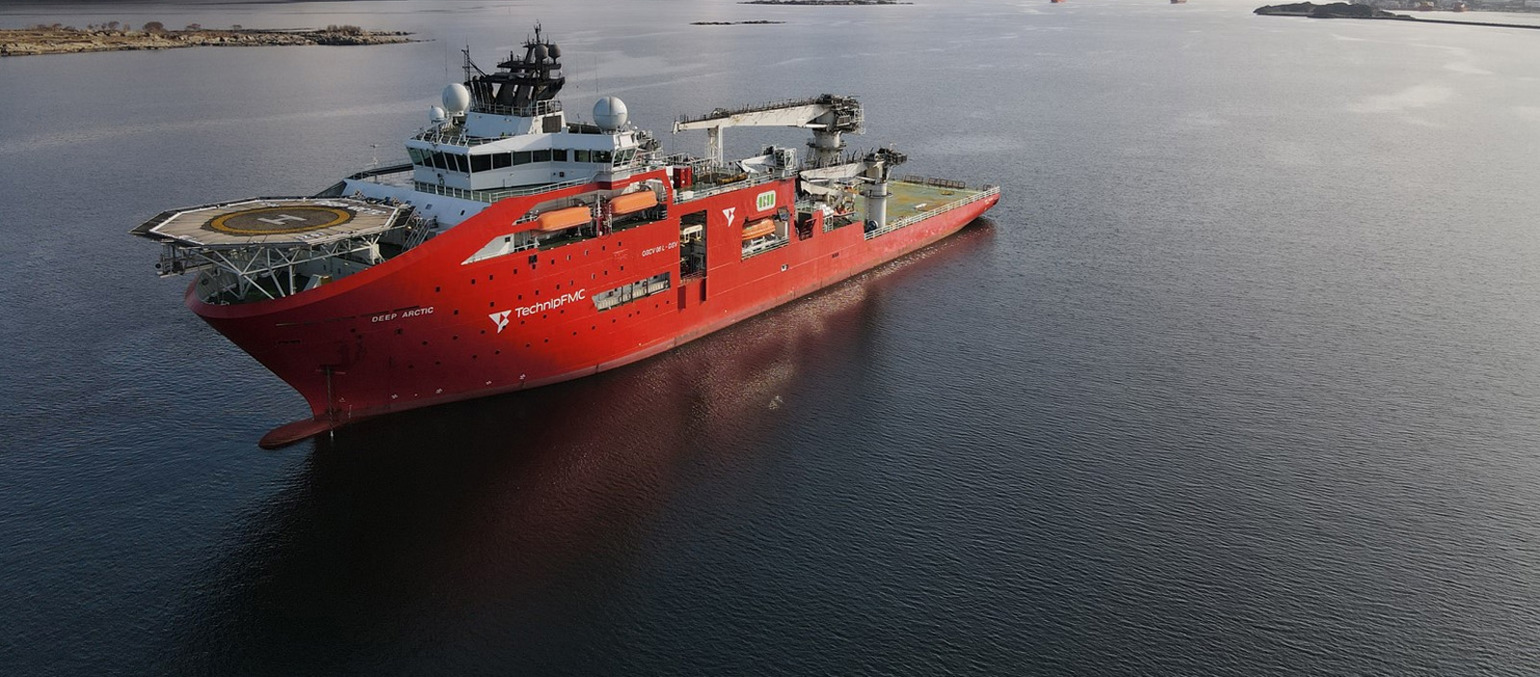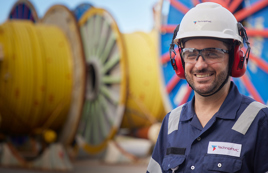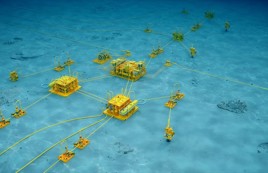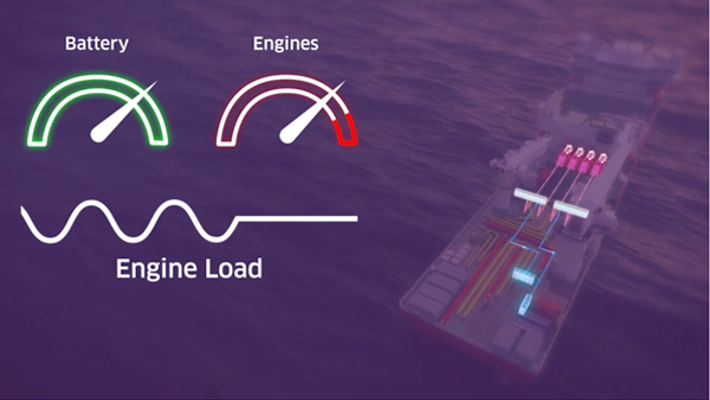News - Press Release

TechnipFMC’s dive support vessel Deep Arctic has been upgraded to run as a battery hybrid in a move that will reduce its fuel use and emissions by 20 percent.
The change helps the company work towards its 50 by 30 target of reducing our Scope 1 and Scope 2 greenhouse gas emissions by 50 percent by 2030 – two measures which also feature in TechnipFMC’s ESG Scorecard.
OneFleet is actively upgrading the company’s vessels to improve energy efficiency.
David Jousset, Vice President OneFleet, said, “As a company, we are committed to reducing our emissions and OneFleet is looking to solutions that will help us reduce the carbon footprint of our subsea activities. Switching to hybrid power on Deep Arctic is an important step for us.”
The rechargeable batteries provide redundancy power for Deep Arctic’s dynamic positioning thrusters. Dynamic positioning is used to keep a vessel in a fixed position relative to the seabed for long periods during diving operations.
Using instant access electric battery power as the back-up means fewer diesel generators are kept running, cutting engine running hours and maintenance costs by up to 50 percent.
In addition to the batteries, when in port, the vessel can connected to shore power so that mobilization activities can be carried out with no direct emissions, where the infrastructure is available.
The hybrid battery conversion took place in the Remontowa shipyard in Gdansk, Poland, in January and February. Commissioning by Seimens and sea trials followed in March and April and the vessel was handed over early this month.
Enova, which is owned by Norway’s Ministry of Climate and Environment, part-funded the project.
More news
-

News | May 06, 2025
TechnipFMC Advances Hybrid Flexible Pipe Technology Innovation in Collaboration with Petrobras
-

News | March 18, 2024
Inside HISEP® – How TechnipFMC is taking dense gas separation and storage fully subsea
-

News | October 19, 2023
TechnipFMC wins NOIA ESG Excellence award
